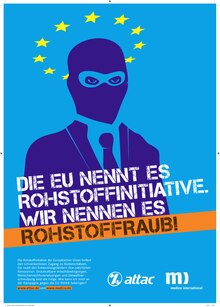
The Association pour la Taxation des Transactions financières et pour l'Action Citoyenne is an activist organisation originally created to promote the establishment of a tax on foreign exchange transactions.

International Physicians for the Prevention of Nuclear War (IPPNW) is a non-partisan federation of national medical groups in 63 countries, representing doctors, medical students, other health workers, and concerned people who share the goal of creating a more peaceful and secure world free from the threat of nuclear annihilation. The organization's headquarters is in Malden, Massachusetts. IPPNW was awarded the Nobel Peace Prize in 1985.

The Carter Center is a nongovernmental, not-for-profit organization founded in 1982 by former U.S. President Jimmy Carter. He and his wife Rosalynn Carter partnered with Emory University just after his defeat in the 1980 United States presidential election. The center is located in a shared building adjacent to the Jimmy Carter Library and Museum on 37 acres (150,000 m2) of parkland, on the site of the razed neighborhood of Copenhill, two miles (3 km) from downtown Atlanta, Georgia. The library and museum are owned and operated by the United States National Archives and Records Administration, while the center is governed by a Board of Trustees, consisting of business leaders, educators, former government officials, and philanthropists.

Jody Williams is an American political activist known for her work in banning anti-personnel landmines, her defense of human rights, and her efforts to promote new understandings of security in today's world. She was awarded the Nobel Peace Prize in 1997 for her work toward the banning and clearing of anti-personnel mines.
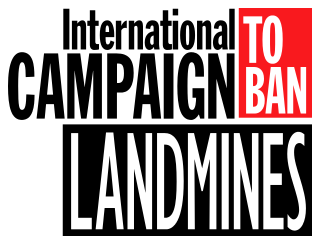
The International Campaign to Ban Landmines (ICBL) is a coalition of non-governmental organizations whose stated objective is a world free of anti-personnel mines and cluster munitions, where mine and cluster munitions survivors see their rights respected and can lead fulfilling lives.

The Convention on the Prohibition of the Use, Stockpiling, Production and Transfer of Anti-Personnel Mines and on their Destruction of 1997, known informally as the Ottawa Treaty, the Anti-Personnel Mine Ban Convention, or often simply the Mine Ban Treaty, aims at eliminating anti-personnel landmines (APLs) around the world.
A non-state actor (NSA) are organizations and/or individuals that are not affiliated with, directed by, or funded by any government.
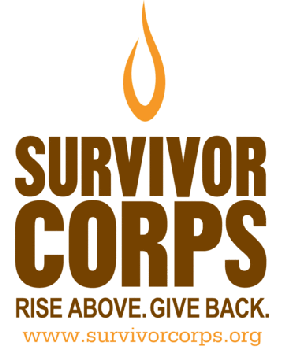
Survivor Corps, formerly known as the Landmine Survivors Network, was a global network of survivors helping survivors to recover from war, rebuild their communities, and break cycles of violence. The organization currently operated programs in Albania, Armenia, Azerbaijan, Bosnia-Herzegovina, Burundi, Colombia, Croatia, El Salvador, Ethiopia, Georgia, Jordan, Kosovo, Macedonia, Montenegro, Serbia, Uganda, Rwanda, the United States and Vietnam.
The Cluster Munition Coalition (CMC) is an international civil society movement, which campaigns against the use, production, stockpiling, and transfer of cluster munitions. Cluster munitions, a type of munition stockpiled by more than 80 states, are documented to have caused significant civilian deaths and injuries and have frequently caused indiscriminate effects in both conflict and peace times. Their use is prohibited under the 2008 Convention on Cluster Munitions, a convention formally endorsed on May 30, 2008, in Dublin, Ireland, and was signed by 94 countries in Oslo on December 3-4, 2008. The Convention entered into force, becoming a binding international law on August 1, 2010, after 30 countries formally ratified it. As of January 4, 2012, it had been signed by 111 countries, of which 77 have ratified.

Nonviolence International (NI) acts as a network of resource centers that promote the use of nonviolence and nonviolent resistance. They have maintained relationships with activists in a number of countries, with their most recent projects taking place in Palestine, Sudan and Ukraine. They partnered with International Center for Nonviolent Conflict to update Gene Sharp's seminal work on 198 methods of nonviolent action through a book publication. NI has also produced a comprehensive database of nonviolence tactics, which stands as the largest collection of nonviolent tactics in the world. They partner with Rutgers University to provide the largest collection of nonviolence training materials in the world.
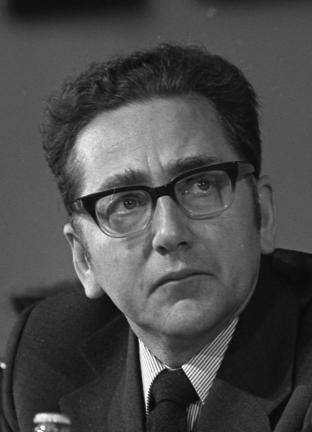
Erhard Eppler was a German politician of the Social Democratic Party (SPD) and founder of the Deutsche Gesellschaft für Technische Zusammenarbeit (GTZ). He studied English, German and history in Frankfurt, Bern and Tübingen, achieved a PhD and worked as a teacher. He met Gustav Heinemann in the late 1940s, who became a role model. Eppler was a member of the Bundestag from 1961 to 1976. He was appointed Minister for Economic Cooperation first in 1968 during the grand coalition of Kurt Georg Kiesinger (CDU) and Willy Brandt (SPD), continuing under Chancellor Brandt in 1969 and Chancellor Helmut Schmidt (SPD) in 1974, when he stepped down.

The German Cancer Research Center is a national cancer research center based in Heidelberg, Germany. It is a member of the Helmholtz Association of German Research Centres, the largest scientific organization in Germany.
Nobelity is a feature documentary which looks at the world's most pressing problems through the eyes of Nobel laureates, including Desmond Tutu, Sir Joseph Rotblat, Ahmed Zewail and Wangari Maathai.

DSW is an international private non-profit foundation addressing Sexual & Reproductive Health (SRH) and population dynamics. DSW funds its project and advocacy work from private donations and the financial support of governments, foundations and other organisations. It has its headquarters in Hanover, Germany.

The United Nations Mine Action Service (UNMAS) is a service located within the United Nations Department of Peacekeeping Operations that specializes in coordinating and implementing activities to limit the threat posed by mines, explosive remnants of war and improvised explosive devices.
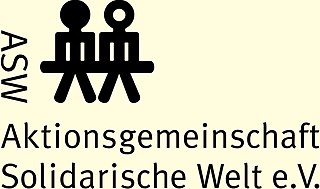
Action for World Solidarity is a non-profit and non-governmental association based in Berlin. The organization supports projects in Asia, Africa and Latin America.
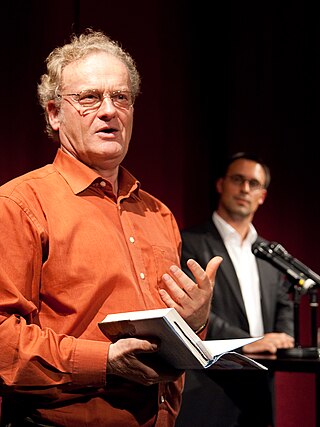
Friedrich Schorlemmer is a German Protestant theologian. He was a prominent member of the civil rights movement in the German Democratic Republic and has continued to take part in politics after German reunification in 1990.

Intersex civil society organizations have existed since at least the mid-1980s. They include peer support groups and advocacy organizations active on health and medical issues, human rights, legal recognition, and peer and family support. Some groups, including the earliest, were open to people with specific intersex traits, while others are open to people with many different kinds of intersex traits.
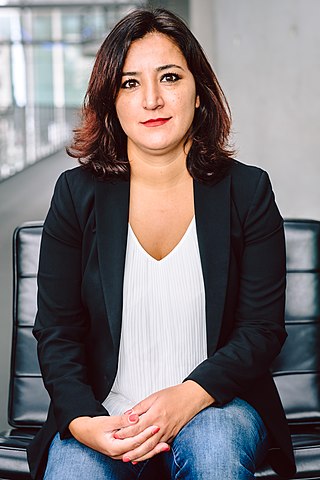
Gökay Akbulut is a Turkish-German politician and social scientist. She is currently serving in the Bundestag as a member of The Left Party from the German federal state of Baden-Württemberg.

Luisa-Marie Neubauer is a German climate activist. She is one of the main organisers of the school strike for climate movement in Germany, where it is commonly referred to under its alternative name Fridays for Future. She advocates a climate policy that complies with and surpasses the Paris Agreement and endorses de-growth. Neubauer is a member of Alliance 90/The Greens and the Green Youth.

